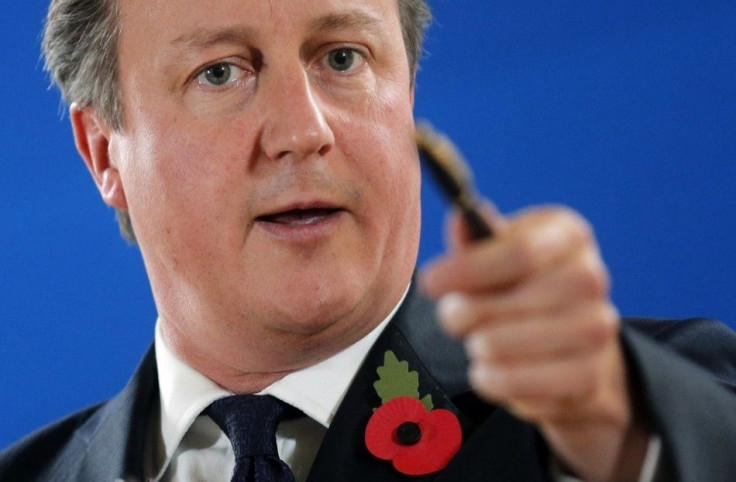UK PM David Cameron changes mind on Syria's migrant crisis

British Prime Minister David Cameron backed down from his statement of not supporting the Syrian refugees under political pressure on Thursday after facing criticism. Not only did people from his own nation criticise him, but those from other nations also questioned his morale on the statement he made on Wednesday.
The PM raised his voice against Britain’s attempt to shelter people fleeing from the Syrian war. “I don’t think there is an answer that can be achieved simply by taking more and more refugees,” he said. However, within less than 24 hours of the statement, he changed his opinion and said, “Britain is a moral nation and we will fulfil our moral responsibilities.”
The sudden change in Cameron’s opinion has been acknowledged by the officials of Downing Street, claiming that the PM was moved by the public’s reaction to the pictures of a drowned Syrian boy on the beach of Turkey. “Anyone who saw those pictures overnight could not help but be moved and, as a father, I felt deeply moved by the sight of that young boy on a beach in Turkey,” said Cameron in a speech at a Hitachi plant at Newton Aycliffe in County Durham. On Thursday, the PM said the policy was under review and the nation will try its best to make the refugees comfortable.
British ministers have kept the level of financial support generous to support the victims of Syrian war, but the sensitivity of the issue and reactions of politicians, church leaders and community groups have made it necessary for the authorities to rethink the funding of the camps run by the United Nations High Commissioner for Refugees, or UNHCR.
Meanwhile, Abdullah Kurdi, the father of the Syrian boy who drowned in the crisis, said that he was preparing to move to Kobani, his hometown, with the dead bodies of his two sons and wife. Laura Kuenssberg of the BBC said that the citizens in Downing Street has come to a conclusion that political pressure has forced them to provide additional response to the crisis, but no final decision has yet been made.
The reaction of Cameron, as a prime minister of a nation, is a far cry from former PM Edward Heath. In 1972, when Asians were forced to leave the former British colony Uganda, the then-British PM Heath stood by the victims and told his rightwing critics that if they do not get support from them, they “would be rotting in concentration camps.”
Contact the writer at feedback@ibtimes.com.au, or let us know what you think below.





















